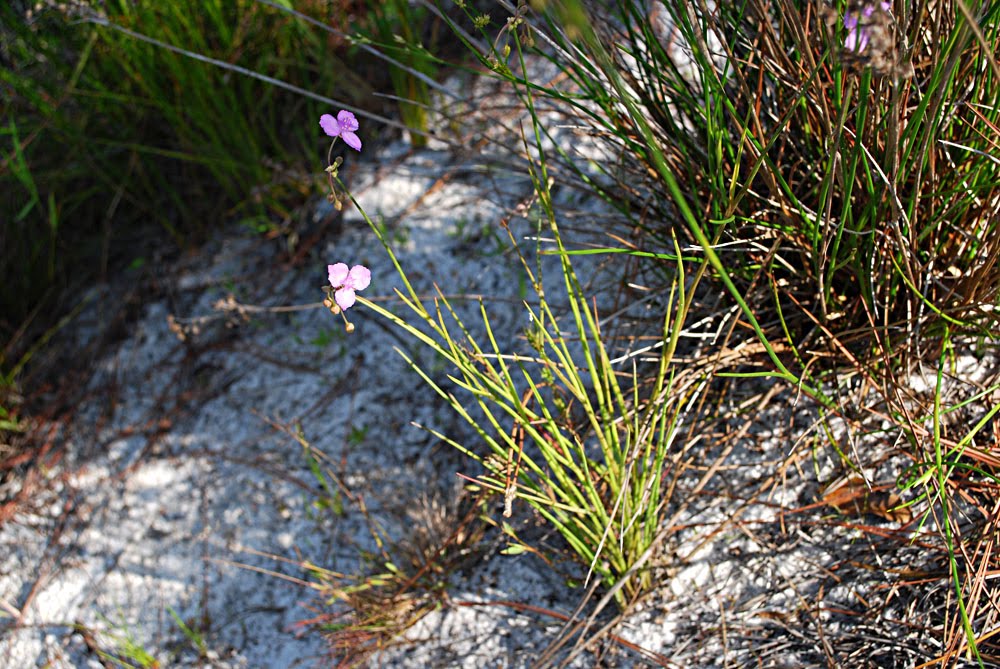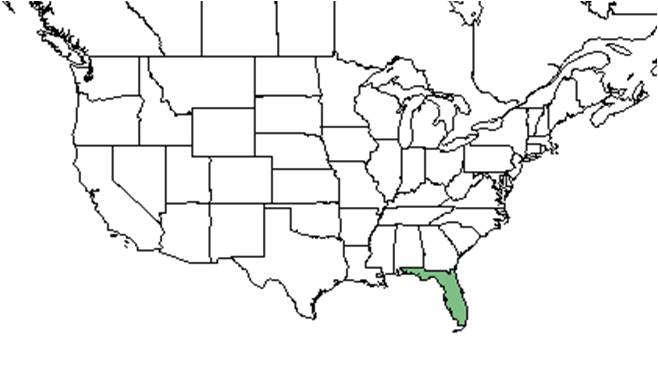Difference between revisions of "Cuthbertia ornata"
Krobertson (talk | contribs) |
Krobertson (talk | contribs) |
||
| Line 34: | Line 34: | ||
===Phenology=== <!--Timing off flowering, fruiting, seed dispersal, and environmental triggers. Cite PanFlora website if appropriate: http://www.gilnelson.com/PanFlora/ --> | ===Phenology=== <!--Timing off flowering, fruiting, seed dispersal, and environmental triggers. Cite PanFlora website if appropriate: http://www.gilnelson.com/PanFlora/ --> | ||
| − | Flowers are pink, ephemeral, bisexual, and radially symmetrical (Lakela 1972); usually blooming late summer and early fall <ref name="Native"/> | + | Flowers are pink, ephemeral, bisexual, and radially symmetrical (Lakela 1972); usually blooming late summer and early fall.<ref name="Native"/> |
===Seed dispersal=== | ===Seed dispersal=== | ||
Revision as of 13:40, 15 August 2016
| Cuthbertia ornata | |
|---|---|

| |
| Photo by Wayne Matchett above is of Callisia ornata (accepted synonym), SpaceCoastWildflowers.com | |
| Scientific classification | |
| Kingdom: | Plantae |
| Division: | Magnoliophyta - Flowering plants |
| Class: | Liliopsida – Monocotyledons |
| Order: | Commelinales |
| Family: | Commelinaceae |
| Genus: | Cuthbertia |
| Species: | C. ornata |
| Binomial name | |
| Cuthbertia ornata (Small) G. Tucker | |

| |
| Natural range of Cuthbertia ornata from USDA NRCS Plants Database. | |
Common name: Florida scrub roseling
Contents
Taxonomic notes
Synonyms: Callisia ornata (Small) G. Tucker; Tradescantia rosea Ventenat var. ornata (Small) E.S. Anderson & Woodson
Description
A description of Cuthbertia ornata is provided in The Flora of North America.
C. ornata is a annual plant with linear blades and a stalk that can reach up to 12 inches high.[1][2] It can be identified by having thin, grasslike leaves along the stem and a flower scape that is held above the nearest leaves.[1]
Distribution
Ecology
Habitat
C. ornata is endemic to the Florida peninsula and can be found in sandhills, palmetto-wiregrass scrubs and has occurred along roads.[1][2]
Phenology
Flowers are pink, ephemeral, bisexual, and radially symmetrical (Lakela 1972); usually blooming late summer and early fall.[1]
Seed dispersal
In late summer and early fall the ripened seeds can be found scattered below the parent [1].
Pollination
The following Hymenoptera families and species were observed visiting flowers of Cuthbertia ornata at Archbold Biological Station: [3]
Halictidae: Augochlorella gratiosa
Conservation and management
Cultivation and restoration
Photo Gallery
References and notes
- ↑ 1.0 1.1 1.2 1.3 1.4 [Native Florida Wildflowers] Accessed December 3, 2015
- ↑ 2.0 2.1 [Encyclopedia of Life] Accessed December 3, 2015
- ↑ Deyrup, M.A. 2015. Database of observations of Hymenoptera visitations to flowers of plants on Archbold Biological Station, Florida, USA.